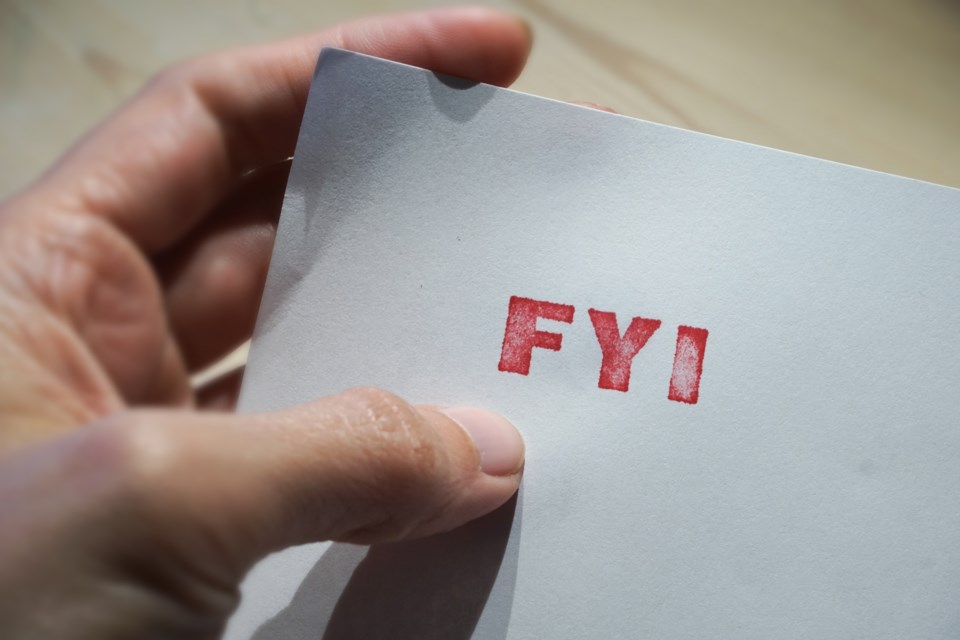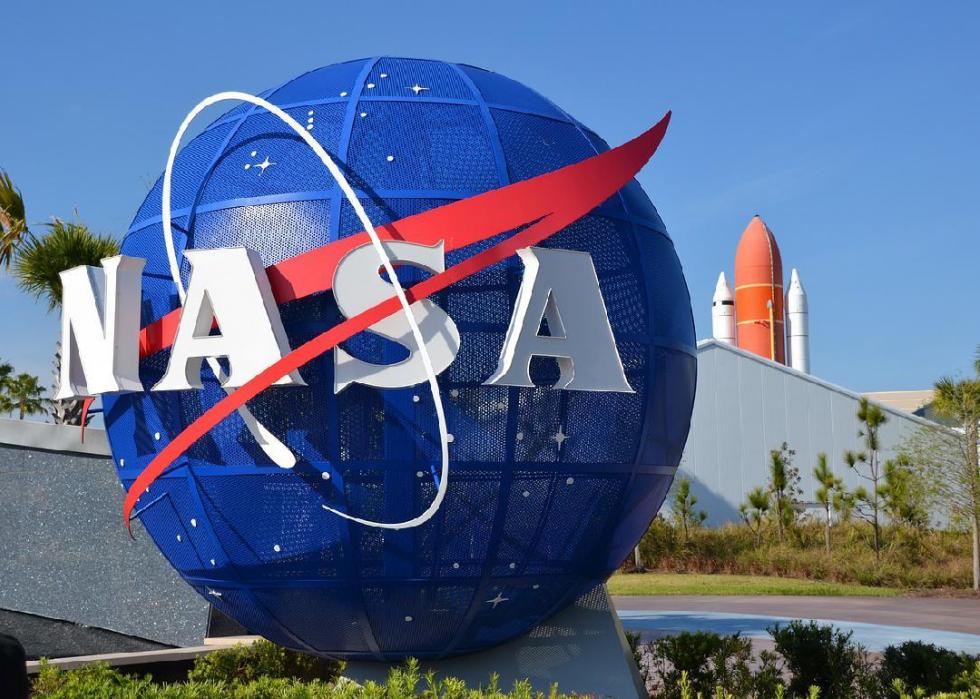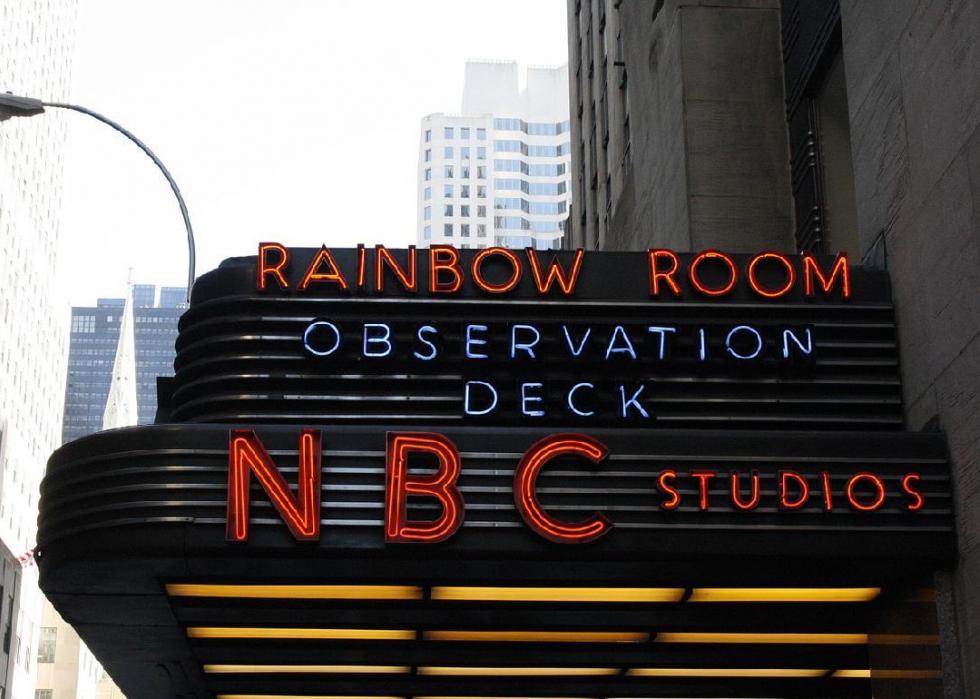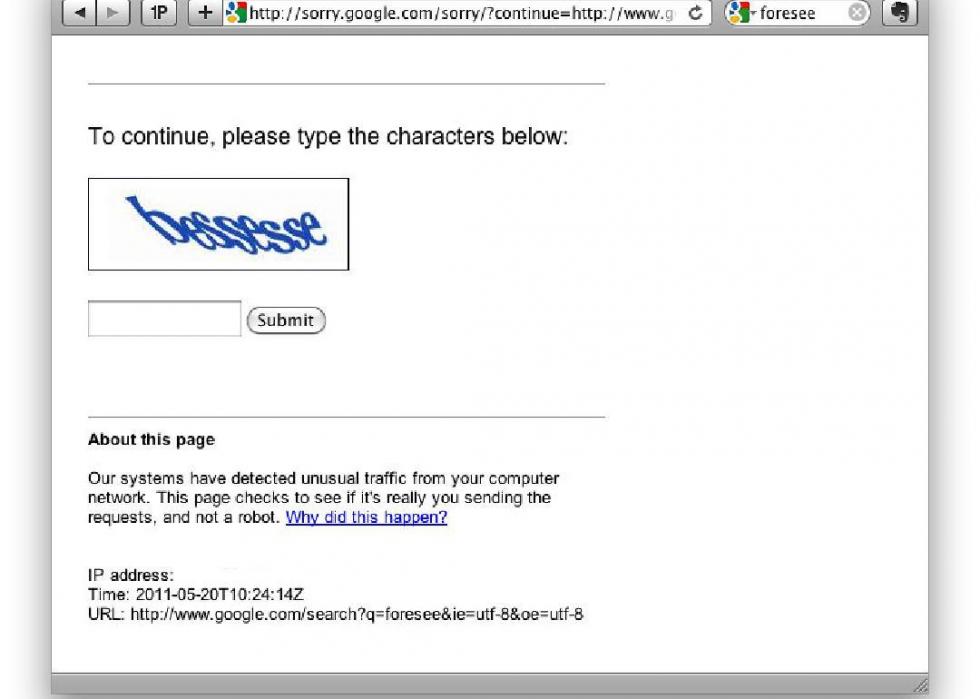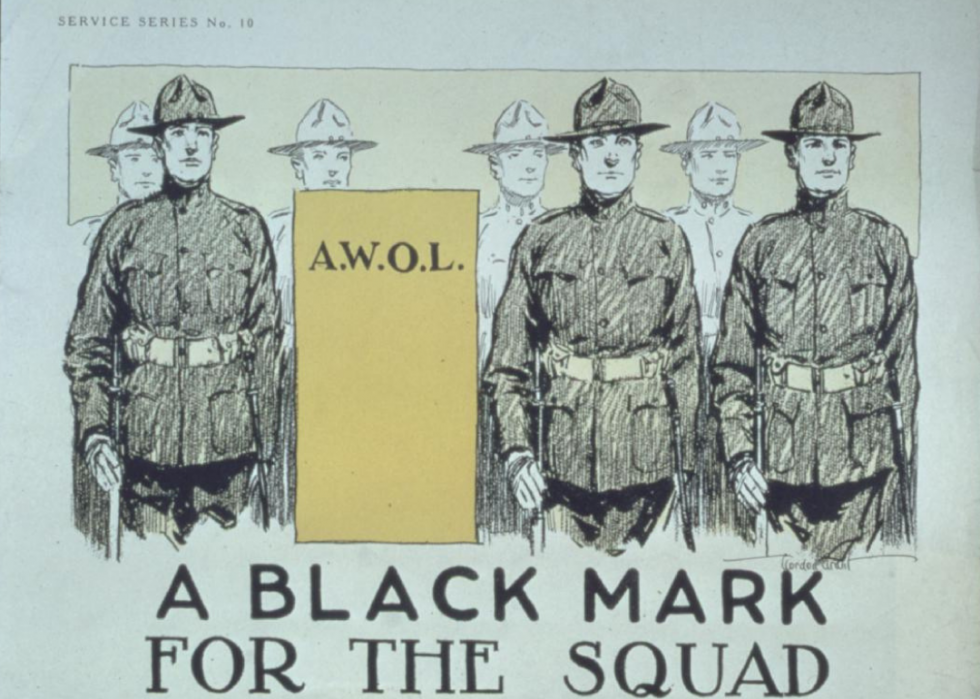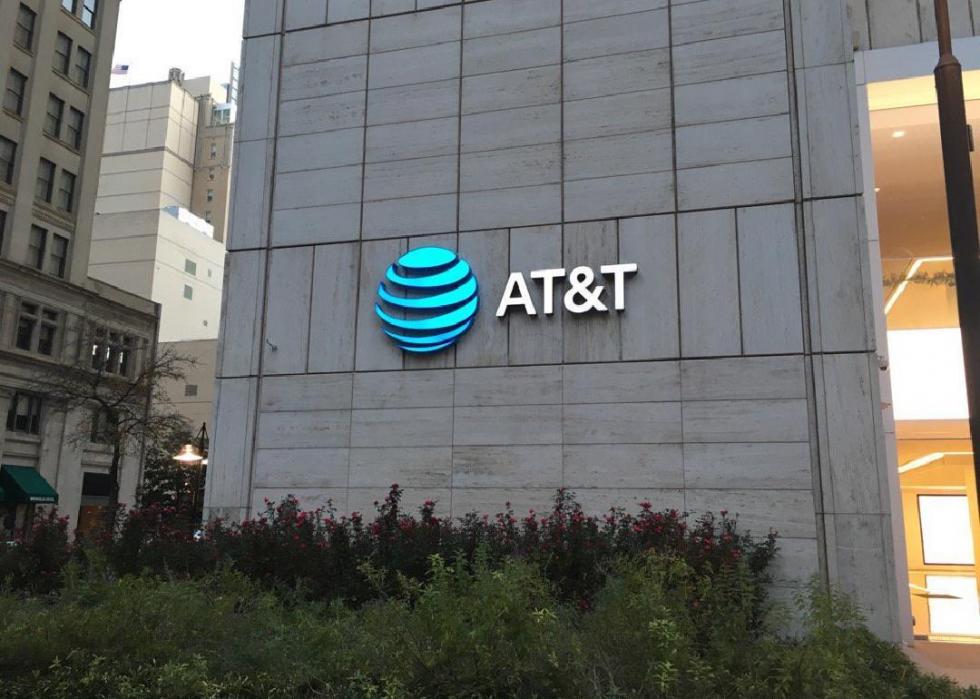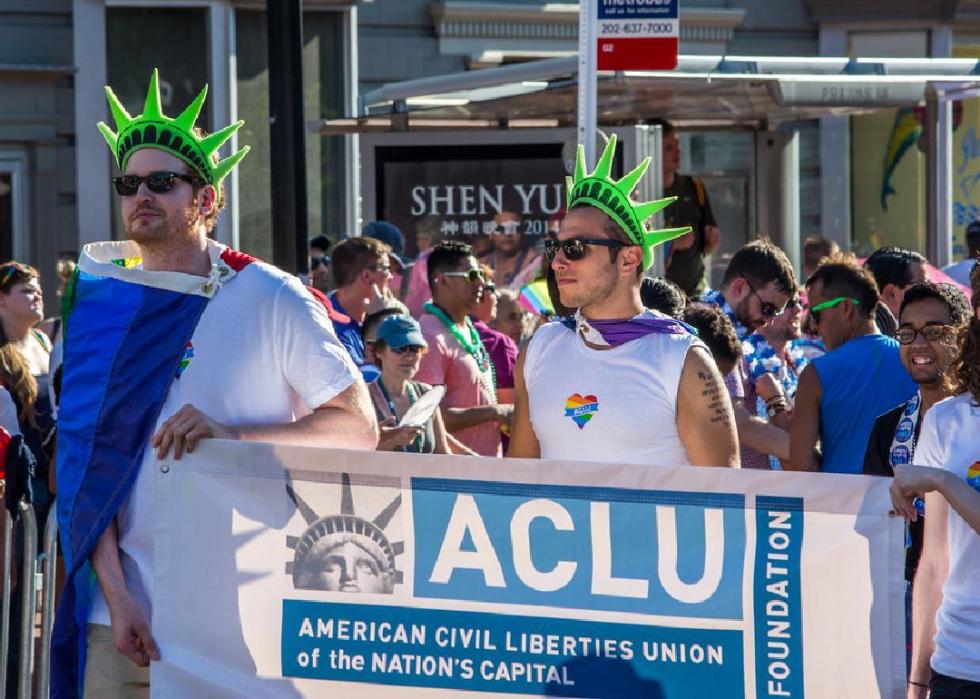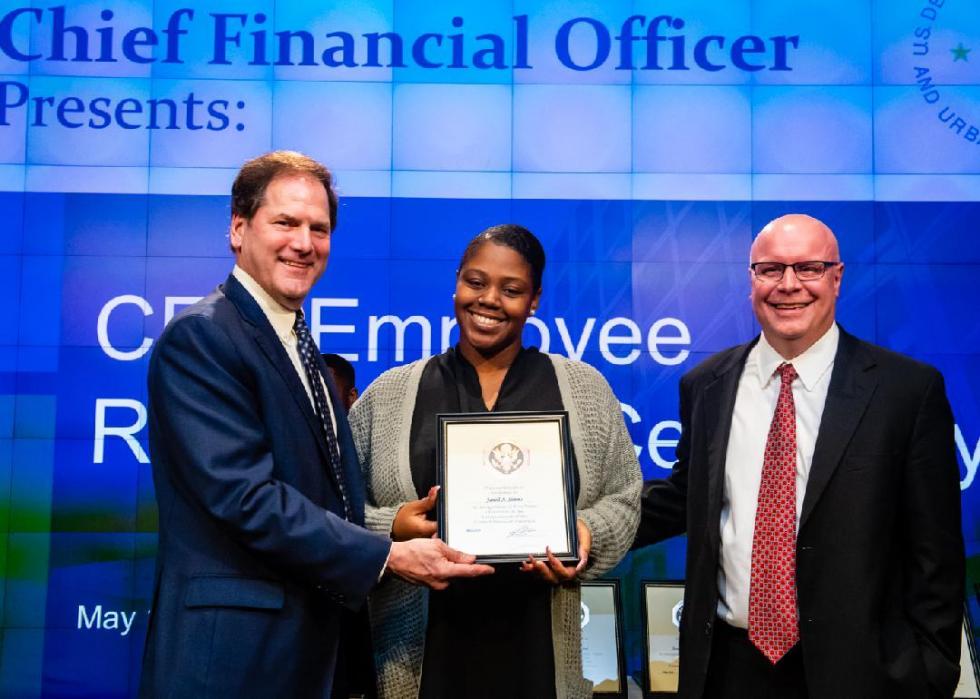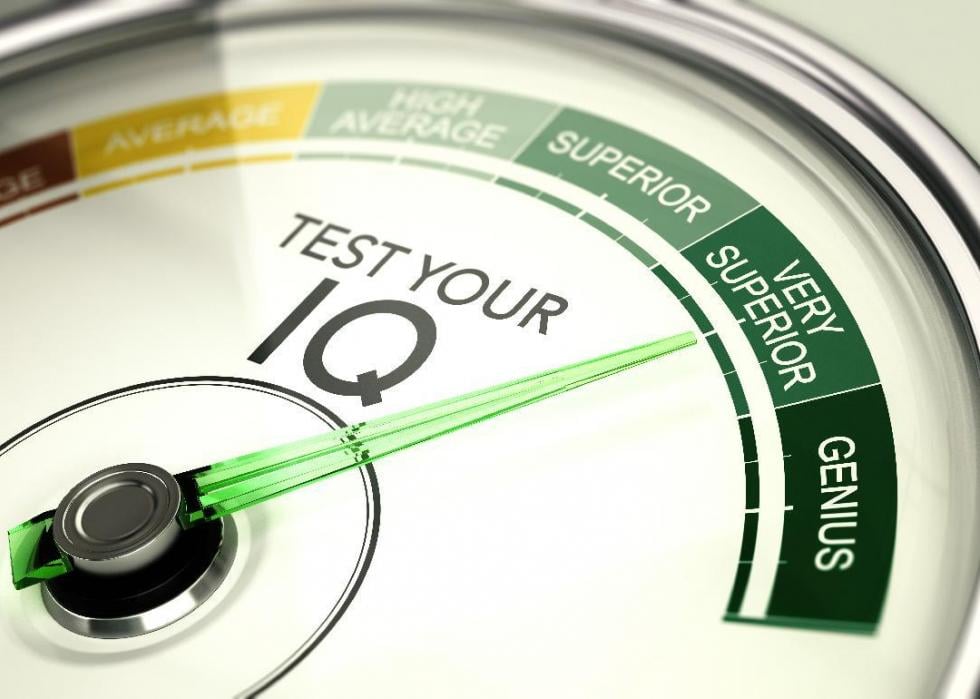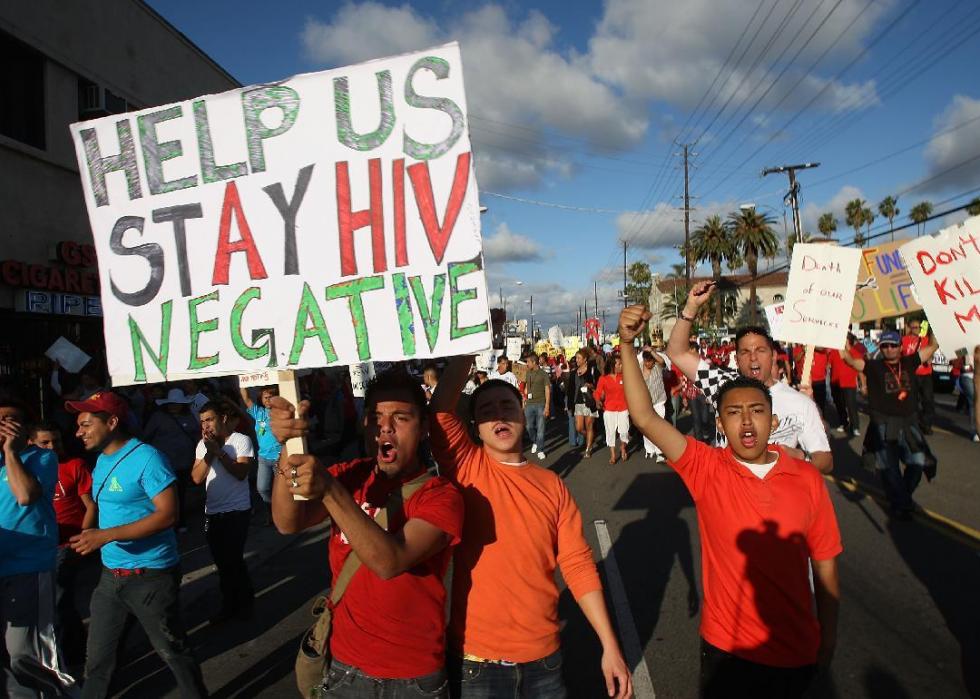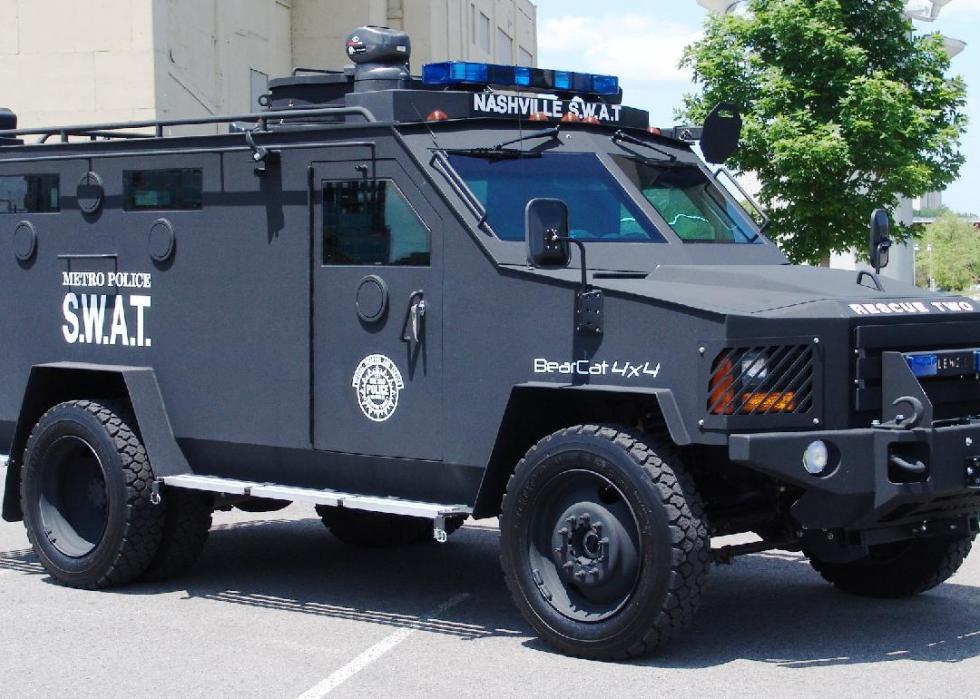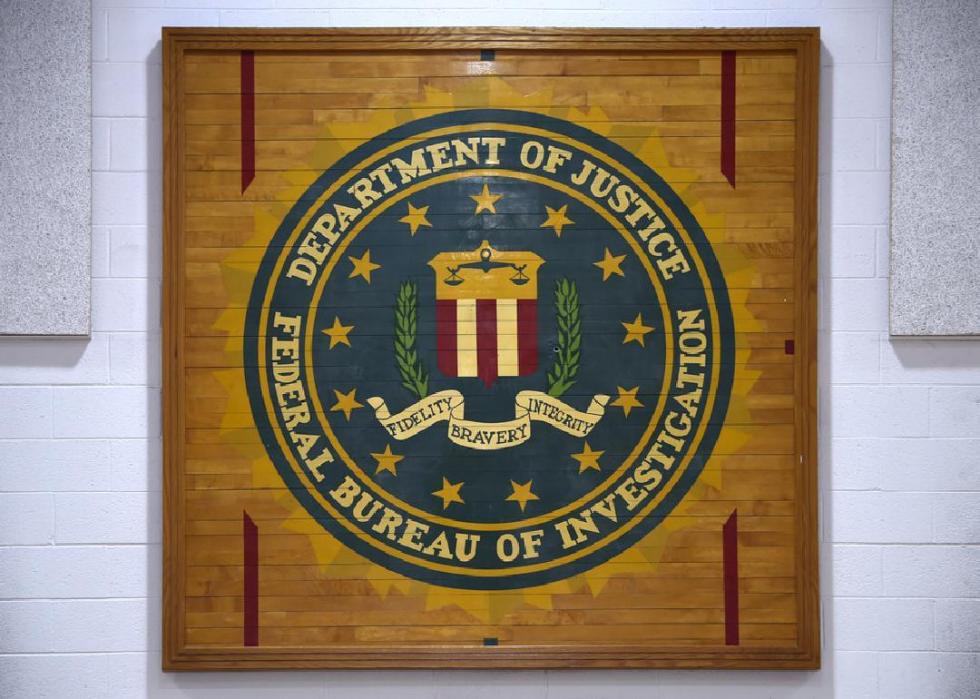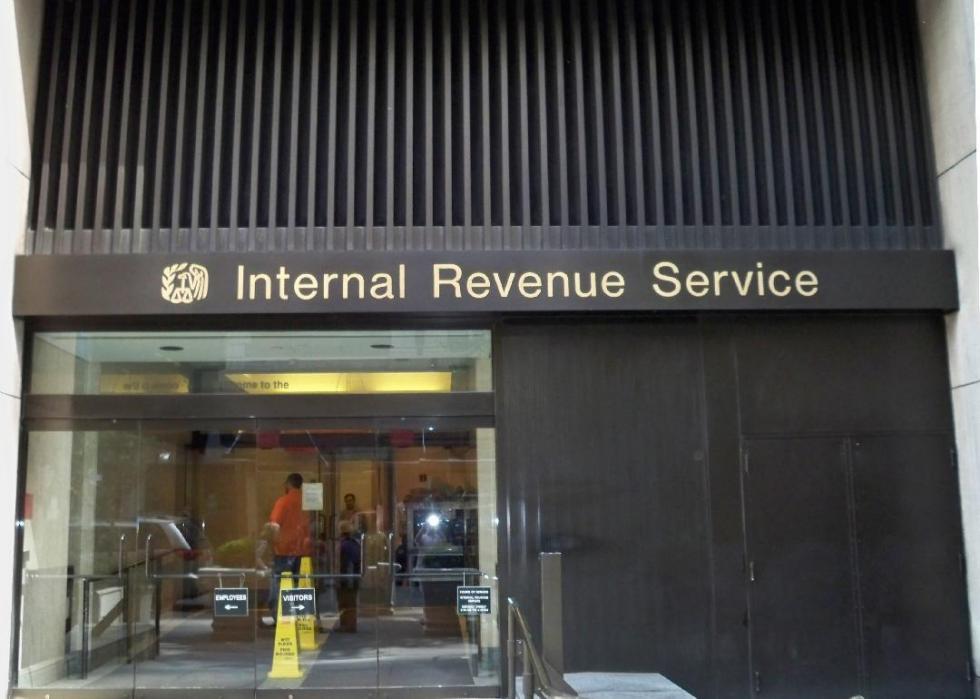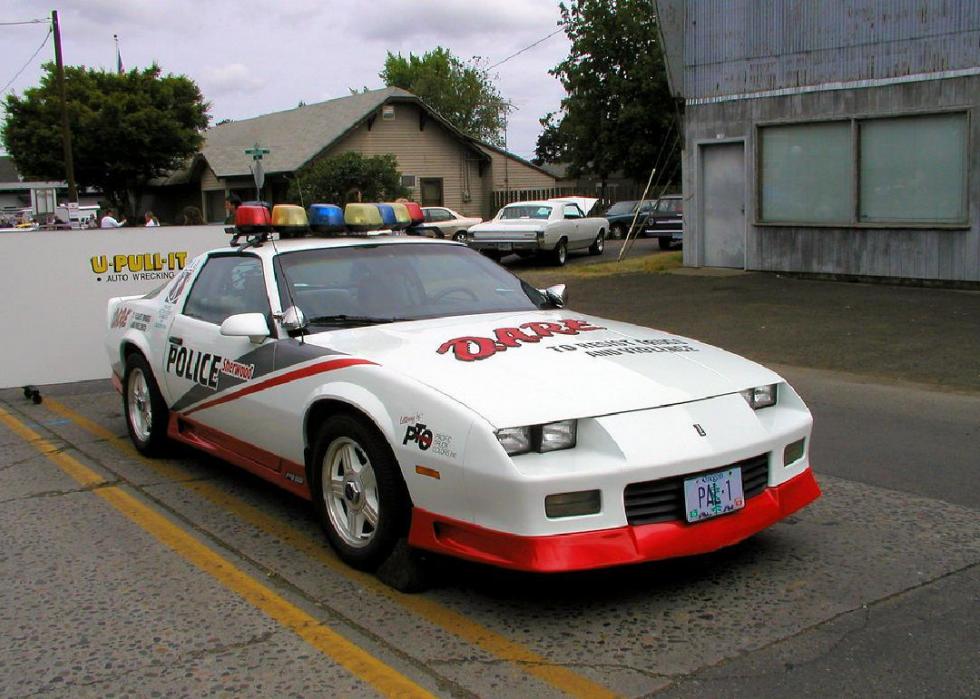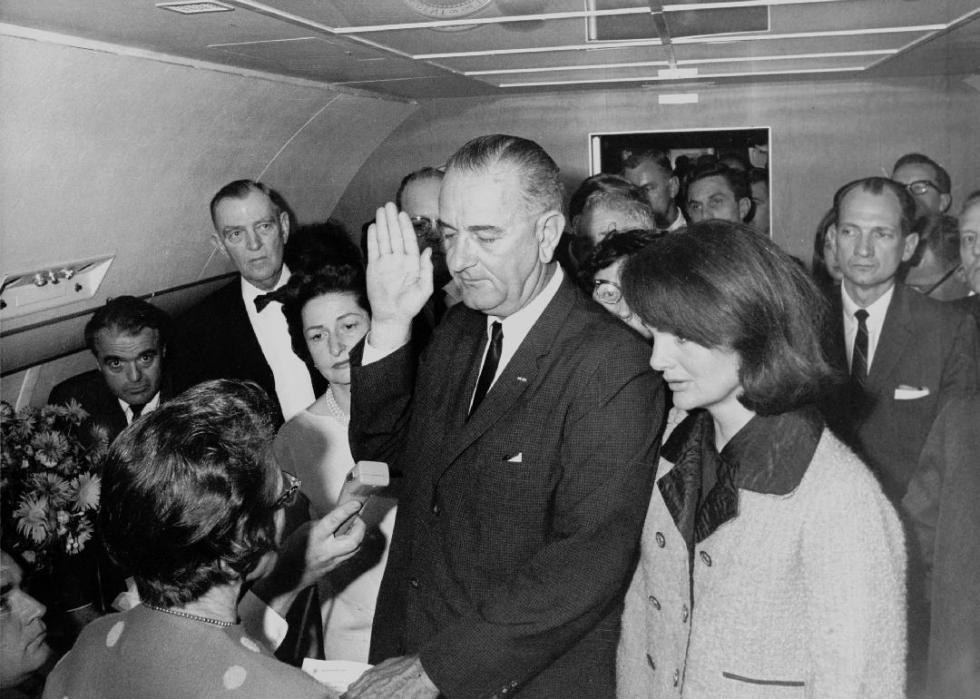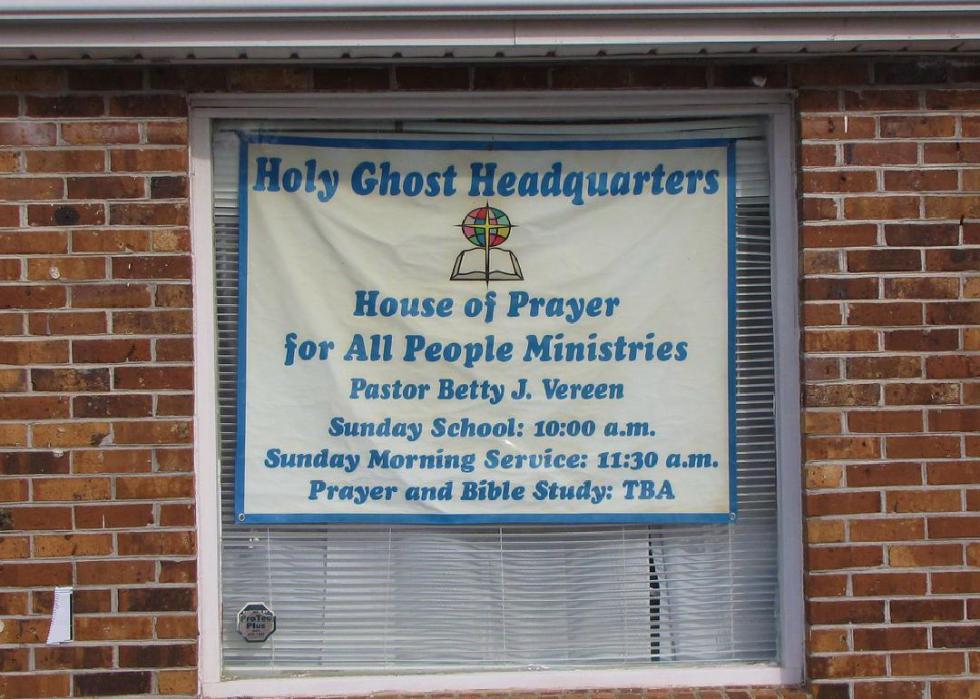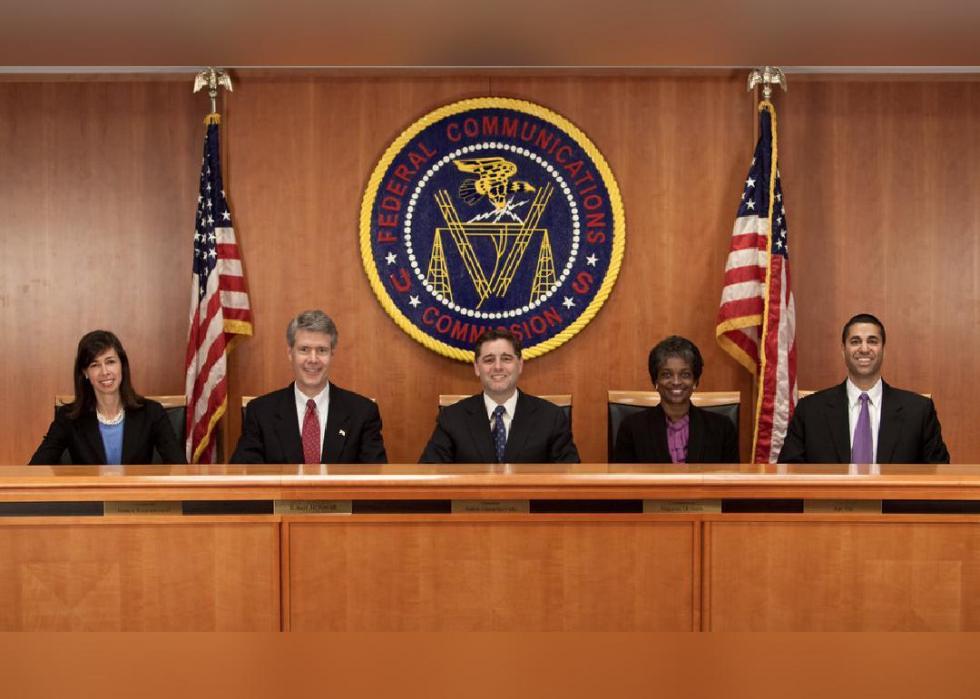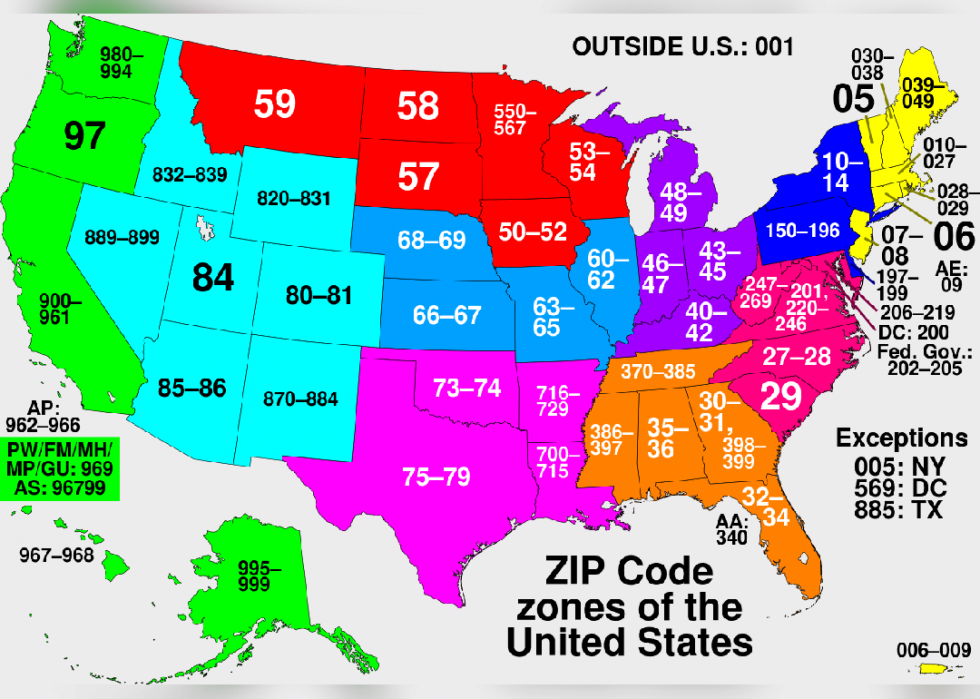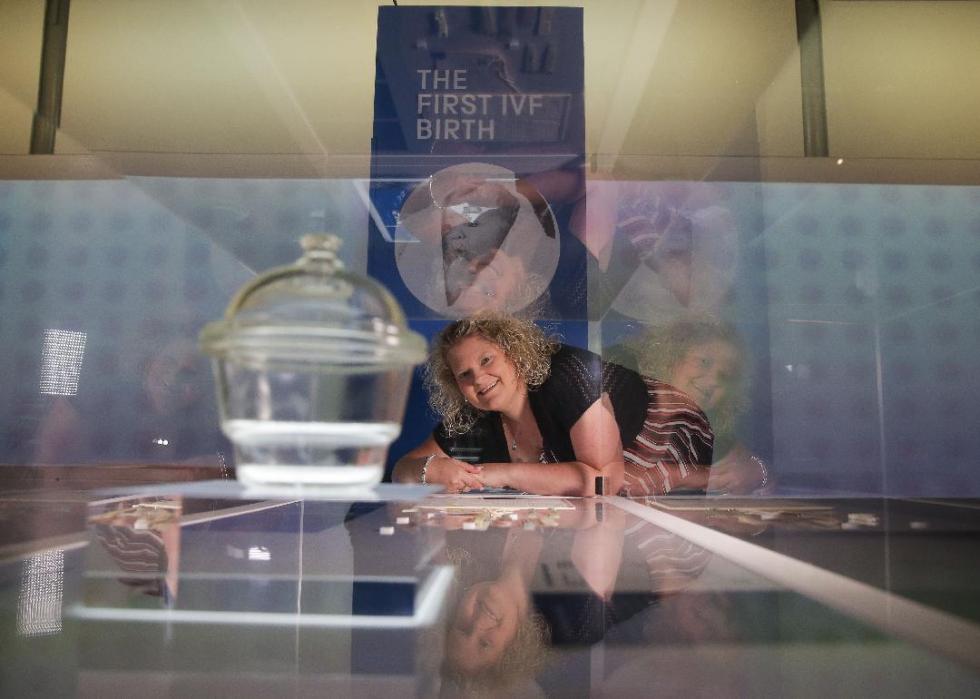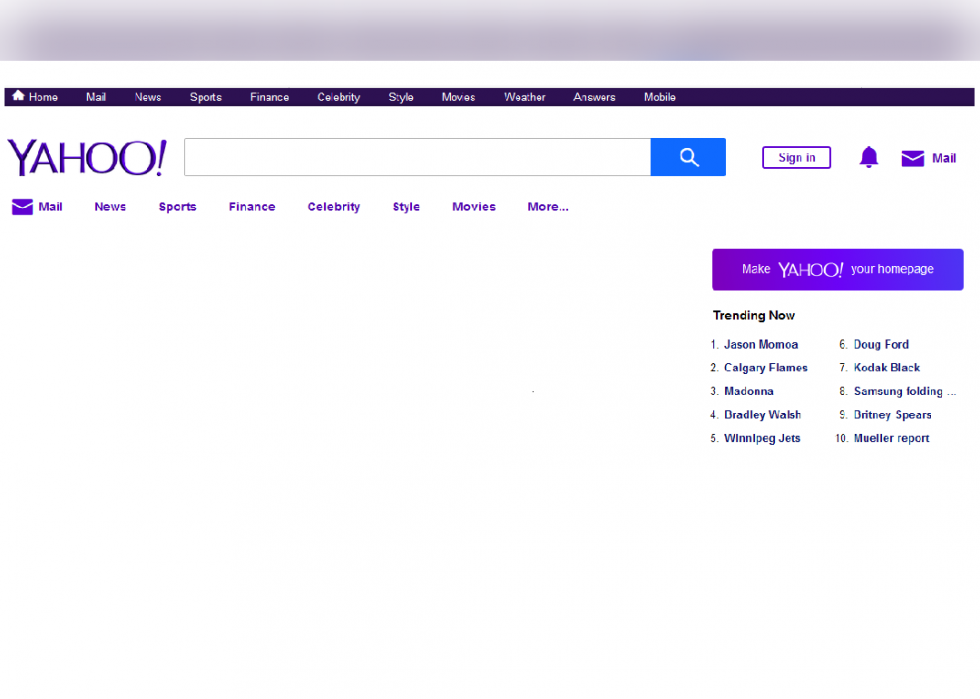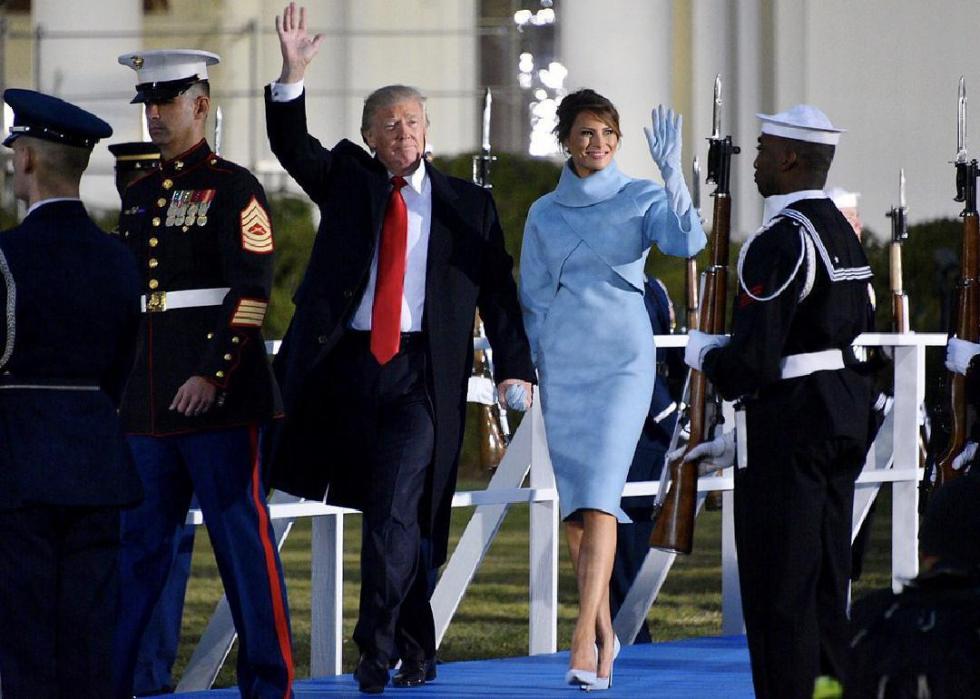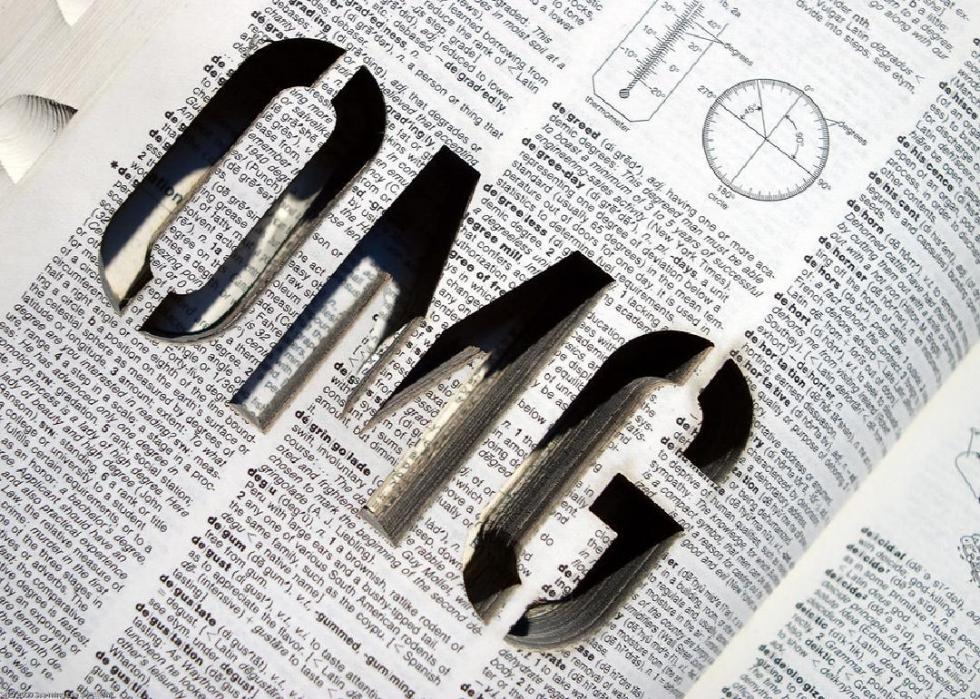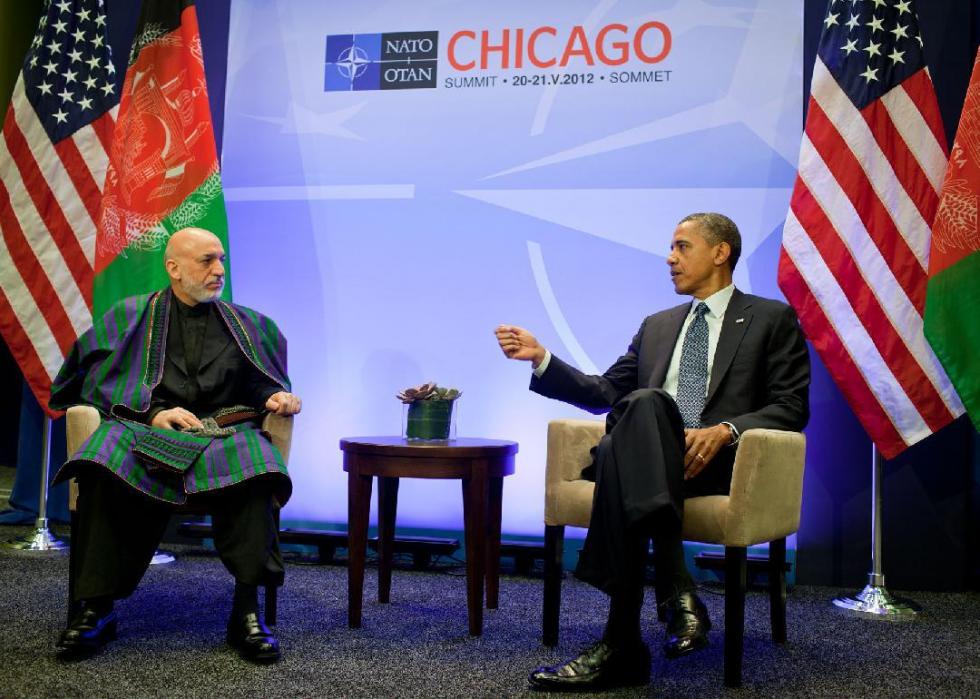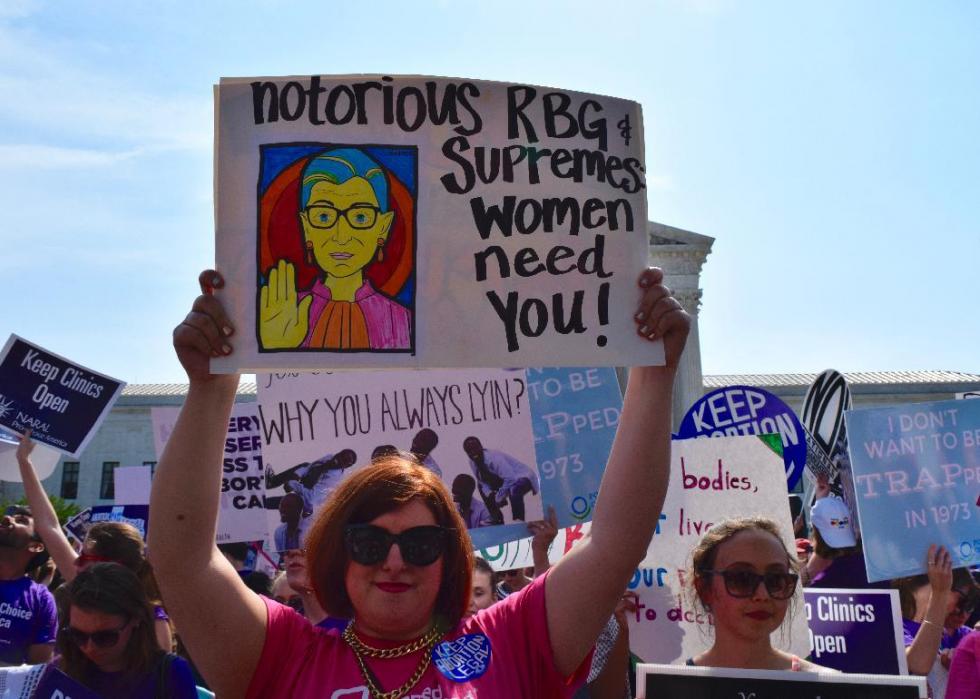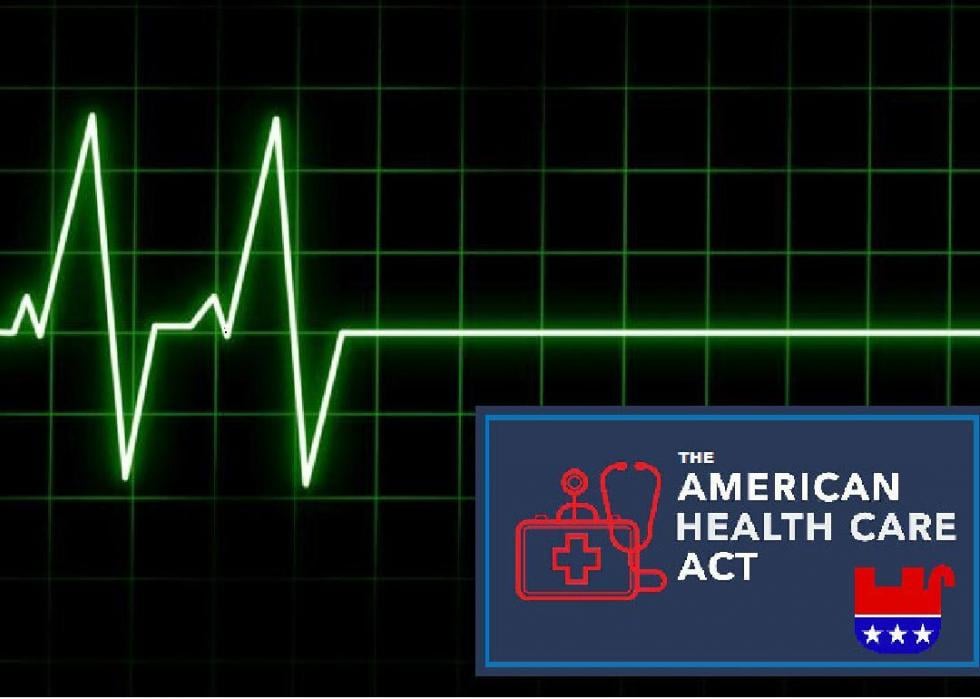Humans have been using acronyms for centuries. One of the earliest examples can be seen in the Greek word "ichthys" which stands for "Iēsous Christos, Theou Yios, Sōtēr" (or "Jesus Christ, Son of God, Saviour").
The word, meaning "fish" in Greek, is often used today to describe the Jesus fish symbol. Ancient governments used acronyms, too. The Roman Empire, for example, often referred to itself as SPQR ("Senatus Populusque Romanus").
Today, acronyms are used for a variety of purposes. Government agencies often use them to make their names more easily recognizable, as do private organizations.
For example, places like the Central Intelligence Agency (CIA), Environmental Protection Agency (EPA), World Wildlife Fund (WWF), and National Rifle Association (NRA) are all more commonly known by their abbreviations. When establishing new companies, business owners sometimes use acronyms to come up with a name.
IKEA, for example, is a shortening of "Ingvar Kamprad Elmtaryd Agunnaryd," the founder's name and the farm he grew up on. Similarly, M&M's stands for "Mars & Murrie's," an ode to founder Forrest Mars and Hershey's Bruce Murrie.
Beyond businesses and organizations, acronyms are sometimes used to describe basic actions or scenarios. MIA, for instance, is a military term that means someone is "missing in action," while "ASAP" is used to indicate "as soon as possible." In the modern age, computer and text acronyms have popped up everywhere too with phrases like IDK ("I don't know"), ROFL ("rolling on the floor laughing"), and BFF ("best friends forever").
Examples of general shorthand phrases have also become part of the English language—terms like DIY ("do it yourself"), RIP ("rest in peace"), and DOB ("date of birth"). Even people's names are sometimes abbreviated, as in the cases of JFK or MLK.
Acronyms are so common, in fact, that often people recognize the concept without knowing what all of the letters stand for. To help you test your own personal acronym knowledge, Stacker has put together a slideshow featuring 50 of the most common abbreviations, along with their definitions. Take a scroll though to see which ones you can identify.
NASA
- Stands for: National Aeronautics and Space Administration
Founded in 1958, the National Aeronautics and Space Administration is the United States space agency that conducts all of the nation's high-level aeronautics research and runs the civilian space program. The agency was responsible for sending Neil Armstrong to the moon in 1969 and deploying the Curiosity rover to Mars in 2012.
SCUBA
- Stands for: Self-Contained Underwater Breathing Apparatus
Scuba diving is coined after the "self-contained underwater breathing apparatus" that allows you to breathe underwater. The equipment, which has been around since the nineteenth century, was popularized during World War II when the U.S. military used it in combat. In the 1960s, the sport became popular as a recreational activity when the Professional Association of Diving Instructors (PADI) was established.
FDR
- Stands for: Franklin Delano Roosevelt
Franklin Delano Roosevelt, who was often referred to as"FDR," was the 32nd president of the United States. He served from 1933 to 1945; however, he had a stroke during his fourth term and died just 11 weeks in. He led the country during the majority of World War II, passing away only months before the Axis Powers surrendered. During his first inauguration, he famously said: "The only thing we have to fear is fear itself."
NBC
- Stands for: National Broadcasting Company
Established in New York in 1926, the National Broadcasting Company is the oldest major broadcasting company in the United States. Today it is widely recognized by its colourful peacock logo. However, the emblem wasn't officially introduced until the late '70s when the station launched colour broadcasting—a new technology at the time.
SPF
- Stands for: Sun Protection Factor
When you see the term SPF on a bottle of sunscreen, it's referring to the "sun protection factor." The number signals how long you can sit in the sun before your skin burns. An SPF rating of 15, for example, allows you to be exposed for approximately 150 minutes before burning. Experts note, however, that this timeframe can vary widely according to your skin type and previous sun exposure.
CAPTCHA
- Stands for: Completely Automated Public Turing Test to tell Computers and Humans Apart
CAPTCHAs are those symbols that sometimes pop up after you enter a password or attempt other login activities. They prompt you to enter a number sequence or click images to verify you are a human. Short for "completely automated public Turing test to tell computers and humans apart," the term was developed in the early 2000s to help distinguish people from robots.
AWOL
- Stands for: Absent Without Leave
AWOL is a military term that stands for "absent without leave." It refers to soldiers who are absent but without the intent to desert (as opposed to those permanently abandoning their posts). Over the years, the phrase has evolved beyond the military and can refer to anyone who is missing or absent from school, work, or other obligations.
YOLO
- Stands for: You Only Live Once
Although the term YOLO, which means "you only live once," has been around for many years, it was popularized in 2011 by the rapper Drake when he used it on a bonus track, "The Motto," for his album "Take Care." The phrase is used similarly to "carpe diem" or "seize the day," meant as an encouragement to live boldly and take risks.
AT&T
- Stands for: American Telephone and Telegraph
Although its name today has been shortened, AT&T began as the American Telephone and Telegraph Company. It was established in 1877 as the Bell Telephone Company—sometimes referred to as "Ma Bell"—and held a monopoly on U.S. telephone communications for the majority of the 20th century until the United States Justice Department forced it to break up in 1984.
ACLU
- Stands for: American Civil Liberties Union
The American Civil Liberties Union was founded in 1920 just after World War I, springing from the National Civil Liberties Bureau established three years earlier. The organization assists individuals who've experienced civil rights violations and lobbies the legislature and criminal justice system to preserve and promote equal rights.
CFO
- Stands for: Chief Financial Officer
Known as the CFO, a chief financial officer is the person at a company who oversees the finances. They manage things like the budget, accounting tools, financial reporting, and other items related to sales and expenditures. The CFO is often second in command from the CEO (chief executive officer) and works directly under that person.
AOC
- Stands for: Alexandria Ocasio-Cortez
Alexandria Ocasio-Cortez is a U.S. congresswoman from New York who became a rising star in the democratic party shortly after the election of Pres. Donald Trump, partly due to her vocal criticism of the president. Often called "AOC," Ocasio-Cortez was the youngest woman in history to be elected to congress at age 29,. Less than a year prior to her political win, she was working as a bartender.
IQ
- Stands for: Intelligence Quotient
When you ask what someone's IQ is, you're actually asking about their "intelligence quotient," a number meant to rate the ability of an individual to reason and problem-solve. Although IQ is often seen as a barometer of intelligence, some research suggests that for children, the tests may actually reflect their motivation to perform well more than their innate intelligence.
SNAFU
- Stands for: Situation Normal, All F--ked Up
The word "snafu" originated as a military acronym that stood for "Status Nominal: All F--ked Up." However, as it made its way into civilian usage, the abbreviation changed to mean "Situation Normal, All F--ked Up." It's used to indicate a bad scenario, typically one brought about by an unforeseen obstacle or otherwise unexpected problem that was encountered.
UNICEF
- Stands for: United Nations Children's Fund
After World War II, the United Nations General Assembly created the United Nations International Children's Emergency Fund to administer food, water, medicine, and other critically needed supplies to children and their mothers affected by the war. Today, the organization—now simply called the United Nations Children's Fund—is involved in worldwide outreach following natural disasters, armed conflicts, famines, and other crises.
HIV
- Stands for: Human Immunodeficiency Virus
In the 1980s and '90s, the human immunodeficiency viruses (HIV)—the virus that causes AIDS—was essentially a death sentence that killed thousands of people. Today, AIDS remains a devastating epidemic ( affecting more than 1 million people in the U.S. alone). However, medical advances, namely via antiretroviral therapy, have dramatically reduced the number of deaths from the illness.
SWAT
- Stands for: Special Weapons And Tactics
Special Weapons And Tactics teams, often referred to as SWAT teams, are special law enforcement units that have received training in military tactics and come equipped with extra weapons. They're often called in during drug busts, riots, bomb threats, hostage situations, and other high-stakes scenarios. The gear they carry can range but often includes heavy body armour, ballistic shields, tear gas, sniper rifles, and armoured vehicles.
YMCA
- Stands for: Young Men's Christian Association
Although people often think of the YMCA (or the "Y") as a simple low-cost gym, the facilities have their roots in Victorian England during the Muscular Christian movement. At the time, religious authorities wanted to encourage young Christian men to hone their bodies, play sports, and stay disciplined to better connect with God. "The Muscular Christians strongly believed in the formative power of athletic competition," Jack Moore wrote for The Guardian, adding, "That by participating in games and sports young men would be instilled with positive character traits." The YMCA was born from this and ethos today it has locations in 119 countries.
SMH
- Stands for: Shaking My Head
SMH, which stands for "shaking my head," is slang used on the internet or via text messaging to express disgust, disappointment, embarrassment, or other similar emotions. The phrase is so popular these days that news outlets have even begun using it. For example, last year BET ran a headline that read: " SMH: Jay-Z Left the Grammys Empty-Handed and the Internet is Rioting."
FBI
- Stands for: Federal Bureau of Investigation
Most people know what the FBI does even if they don't know what each of the letters stands for. In addition to being America's top law enforcement agency, the Federal Bureau of Investigation runs a "10 Most Wanted Fugitives list," which its first director, J. Edgar Hoover, established in 1950. Between then and 2011, the agency captured or located 465 of the 494 criminals on the list, boasting a 94% success rate.
EOD
- Stands for: End Of Day
In office culture, EOD typically refers to "end of day." It's often used in email correspondence to indicate deadlines (eg: "Please have that report to me by EOD.") Usually, the end of the day is defined as the closing of business hours or the time when staff goes home.
IRS
- Stands for: Internal Revenue Service
In early April of every year, most Americans become quite familiar with the Internal Revenue Service, commonly called the IRS. This is because the agency is charged with collecting U.S. taxes which are due every spring on April 15th. It hasn't always been this way, however— tax day used to be on March 1.
REI
- Stands for: Recreational Equipment, Inc.
If you've ever shopped for a rain jacket or camping gear, you're probably familiar with Recreational Equipment, Inc., commonly known as REI. The outdoor retail giant stocks everything from backpacking gear and ski clothes to water sports accessories. The Seattle-based company began in 1938 when a married couple created a co-op so they could import mountain climbing gear at better prices.
NSFW
- Stands for: Not Safe For Work
When the phrase NSFW ("not safe for work") first began, it was mainly used to tag links and URLs that contaned adult content—mostly sex and nudity—to warn the recipient not to open it up in the office. Since then, the term has evolved and now includes any sort of movies, books, games, videos, or other products with dirty words, sexual content, violence, or other adult-only material.
D.A.R.E.
- Stands for: Drug Abuse Resistance Education
In 1983, Los Angeles' police chief, along with the LA Unified School District, launched a campaign to curb drug use and gang involvement in the city's public schools that was dubbed "Drug Abuse Resistance Education" (D.A.R.E.). Although the program is still in existence, it received major funding cuts in 2010 after a series of reports were published suggesting that its methodology was ineffective. Aside from general ineffectiveness, one of the things it's been criticized for is the use of children as informants.
UPS
- Stands for: United Parcel Service
Although many people mistakenly believe that UPS stands for "United Postal Service," it is in fact the United Parcel Service. In 2017, UPS was the world's largest airline when ranked by the number of destinations, servicing 720 places worldwide. The company has more than 230 aircraft of its own and also accesses destinations via partner carriers.
SIM (card)
- Stands for: Subscriber Identification Module
SIM cards are the tiny chips in mobile phones that identify the cellular network user. The cards, which are shorthand for "subscriber identification module," allow mobile service providers to authenticate users on their networks. At one time, they were the size of credit cards.
LBJ
- Stands for: Lyndon Baines Johnson
Often referred to as "LBJ," Lyndon Baines Johnson was the 36th American President. He began as John F. Kennedy's vice president but was sworn into office after the president was assassinated in 1963. He then won a reelection the following year, serving through 1969. Johnson served during the height of the Vietnam War protests, during which activists would often chant, "Hey, hey, LBJ, how many kids did you kill today?"
GMO
- Stands for: Genetically Modified Organism
A genetically modified organism, or "GMO" for short, can refer to any plant, animal, or single-celled organism that's been changed via genetic engineering. The first genetically engineered drug approved by the U.S. Food and Drug Administration was a type of insulin produced by bacteria in 1982. In 2000, scientists created Vitamin A-enriched golden rice, making it the first food product modified to have richer nutritional value.
OG
- Stands for: Original Gangster
OG, short for "original gangster," is an expression that's been used for decades, particularly within street gangs and rap culture, as a way of indicating respect to someone who's been around a while. According to Dictionary.com, the term originated with Crips in South Central Los Angeles in the early 1970s. It was popularized by rapper Ice-T on his 1991 album "O.G. Original Gangster" and is used today in mainstream slang to describe anyone who is cool or old-school.
ADHD
- Stands for: Attention Deficit Hyperactivity Disorder
Attention Deficit Hyperactivity Disorder, or ADHD is a condition that causes trouble focusing, particularly in kids. The causes are still unknown, but experts have said there are a number of myths. According to the Centers for Disease Control and Prevention: "Research does not support the popularly held views that ADHD is caused by eating too much sugar, watching too much television, parenting, or social and environmental factors such as poverty or family chaos. Of course, many things, including these, might make symptoms worse, especially in certain people. But the evidence is not strong enough to conclude that they are the main causes."
TGIF
- Stands for: Thanks God It's Friday
The expression "TGIF" stands for "Thank God It's Friday." Although its origins are unclear, the four-letter acronym has popped up all over mainstream pop culture. In addition to being the name of a major restaurant chain (T.G.I. Friday's), there was a 1978 disco movie called "Thank God It's Friday," and a 1996 R. Kelly song of the same name. It has also been the title of a key block of ABC's primetime TV on and off since 1989.
P.S.
- Stands for: Postscript
The addendums at the end of letters, notes, and postcards following our signatures can be attributed to the latin phrase "post scriptum" which means "written after." According to Merriam Webster, the first known use of the phrase dates all the way back to 1551.
AARP
- Stands for: American Association of Retired Persons
Established in 1958, the American Association of Retired Persons (AARP) is an organization that provides services and advocates on behalf of senior citizens and retired people. The interest group, which has more than 38 million members, prints a magazine that currently boasts the world's largest circulation.
TCBY
- Stands for: The Country's Best Yogurt
TCBY is an American frozen yogurt chain that once had 1,777 stores throughout the country (though the number has dropped significantly since then). It started out as "This Can't Be Yogurt"; however, the chain was sued in 1984 by a competitor ("I Can't Believe It's Yogurt") and changed the acronym to mean "The Country's Best Yogurt."
USA PATRIOT Act
- Stands for: Uniting and Strengthening America by Providing Appropriate Tools Required to Intercept and Obstruct Terrorism
The USA PATRIOT Act is a classic example of a backronym—an acronym created to spell out a predetermined word or phrase. In this case, it was coined by House Judiciary Committee staffer Chris Cylke in a feat that New York Times Magazine writer William Safire called "acronymic immortality." The anti-terrorism bill was signed into law by George W. Bush in October of 2001 following the Sept. 11 attacks.
TBA
- Stands for: To Be Announced
TBA is a simple abbreviation that means "to be announced," according to Dictionary.com. It's used to indicate something that has not yet been determined—particularly in things like event planning, scheduling, and coordinating. The Cambridge Dictionary notes that the acronym can also mean "to be arranged" or "to be agreed."
IBM
- Stands for: International Business Machines
Although it was originally called the "Computing-Tabulating-Recording Company" when it was formed in 1911, the New York-based IT company renamed itself "International Business Machines," or IBM, in 1924. In the more than 100 years it's been around, the tech company has produced five employees who've won the Nobel Prize.
GIF
- Stands for: Graphics Interchange Format
Graphics Interchange Format files, commonly called GIFs, were created by a team of computer whizzes at CompuServe in 1987. However, it wasn't until the dawn of the digital age that the animated images gained widespread popularity via social media and internet culture. The pronunciation of the file format has sparked intense debate over the years, one which creator Steve Wilhite attempted to quash in 2013 when he said it should be pronounced "jif." Still, the Oxford English Dictionary says both pronunciations are acceptable.
MADD
- Stands for: Mothers Against Drunk Driving
Mothers Against Drunk Driving was founded in 1980 by a California mother named Candace Lightner whose teenage daughter was killed by a drunk driver. Three years after the group's formation, a made-for-TV movie came out about Lightner which brought her case into the spotlight and garnered publicity for the organization. Since it was founded, organizers say they have helped cut drunk driving in half.
FCC
- Stands for: Federal Communications Commission
The Federal Communications Commission is an independent agency within the U.S. government that oversees all major communication channels including radio,TV, satellite, and cable. Earlier this month, the agency announced it would be fining ABC for misusing the Emergency Alert System in a Jimmy Kimmel skit. Separately, it recommended shortening the National Suicide Prevention Lifeline to the three-digit number "988."
ESPN
- Stands for: Entertainment and Sports Programming Network
Technically, the sports network ESPN doesn't stand for anything in its current form because when it was acquired in 1985, it dropped its full name. However, it started out as the Entertainment and Sports Programming Network. As of 2017, the network had 88 million subscribers.
ZIP (code)
- Stands for: Zone Improvement Plan code
Prior to "ZIP" codes, the United States Post Office used postal codes which identified certain zones and helped route mail more efficiently. However, in 1963, the agency restructured the codes, adopting a more formal and extensive five-digit system. These new and improved codes were called "Zone Improvement Plan" codes and helped make the postal service what it is today.
IVF
- Stands for: In Vitro Fertilization
In vitro fertilization, commonly referred to as IVF, is a process by which a woman's eggs are fertilized in a laboratory setting and then implanted in the uterus. The procedure can be performed with a woman's own eggs and her partner's sperm, a donor's eggs and donor sperm, or any combination thereof. The Latin term means "in glass," which refers to the glass tube the fertilization takes place inside and is also the source of the phrase "test tube baby."
YAHOO
- Stands for: Yet Another Hierarchical Officious Oracle
The name "Yahoo!" was reportedly conceived when its two founders decided they needed a catchier name for their search engine business (which they'd previously called "David's and Jerry's Guide to the World Wide Web."). They landed on "yahoo" because it was easy to say and simple to remember (the word comes from Jonathan Swift's novel "Gulliver's Travels"). However, they later decided to make it into an acronym and came up with the slightly tongue-in-cheek phrase "Yet Another Hierarchical Officious Oracle."
POTUS
- Stands for: President of the United States
It is most likely that the term POTUS originated with the telegraph. In 1879, an operator named Walter P. Phillips, who later worked for the Associated Press, wrote an edition of the telegraphic code book with the abbreviation "POT" for "president of the." Subsequently, international telegraphs from the president into the 1940s were labeled as "having been sent by POTUS," explained Phil Edwards writing for Vox. "Later wire services, like those of newspapers and railroads, helped keep POTUS alive [and] well after the telephone took hold."
OMG
- Stands for: Oh My God
Although OMG has been popularized in recent years by internet culture and text messaging, the abbreviation actually dates back as far as 1917. The phrase was first uncovered in a letter from a British admiral to Winston Churchill that reads: "I hear that a new order of Knighthood is on the tapis—O.M.G. (Oh! My God!)—Shower it on the Admiralty!!"
NATO
- Stands for: North Atlantic Treaty Organization
The North Atlantic Treaty Organization, known as NATO, was originally established in 1949 as an agreement between America and other western nations to help fight the Soviet threat. Over the years, NATO spending has been the subject of on-and-off-again debate. Under Pres. Donald Trump, the argument has been reignited as he criticizes the agreement and calls on member countries to pay more.
RBG
- Stands for: Ruth Bader Ginsburg
Ruth Bader Ginsburg has been a U.S. Supreme Court justice since 1993 and more recently, a growing pop-culture phenomenon. As Bustle's Morgan Brinlee pointed out, the justice has been featured in children's books, on Halloween costumes, and even in her own colouring book. She's often referred to as the "Notorious RBG," a reference to rapper Notorious B.I.G. that is thought to have come from a 2013 Tumblr honouring Ginsberg.
DOA
- Stands for: Dead On Arrival
When emergency crews arrive at a hospital and the patient is already deceased, they are declared DOA, or "dead on arrival." Over the years, the phrase has made its way outside medical terminology to include anything that arrives at its destination without a chance of making it. A common example is when legislative bills arrive on the floor of the house or senate without a chance of passing.
